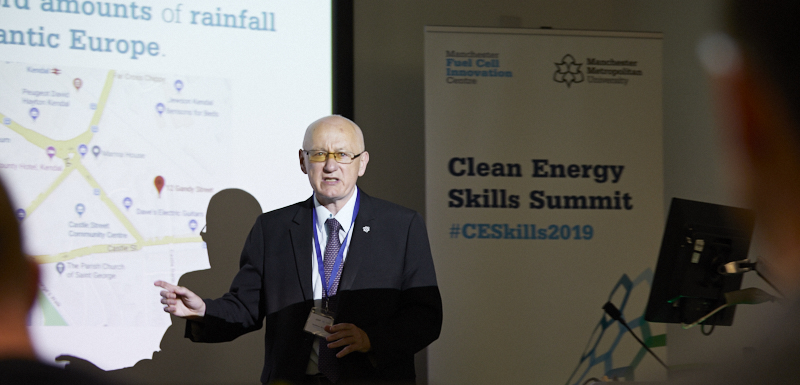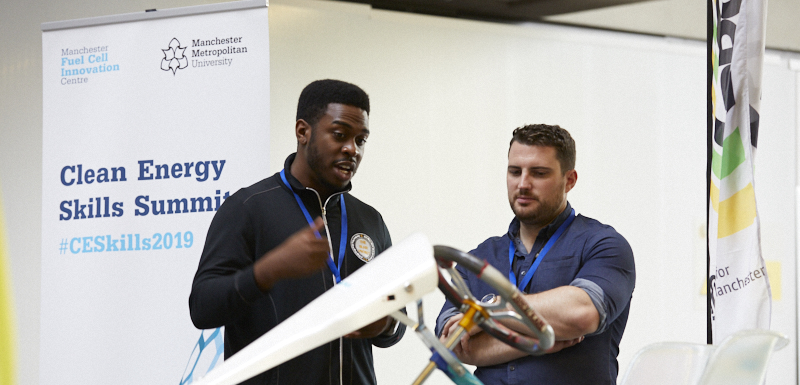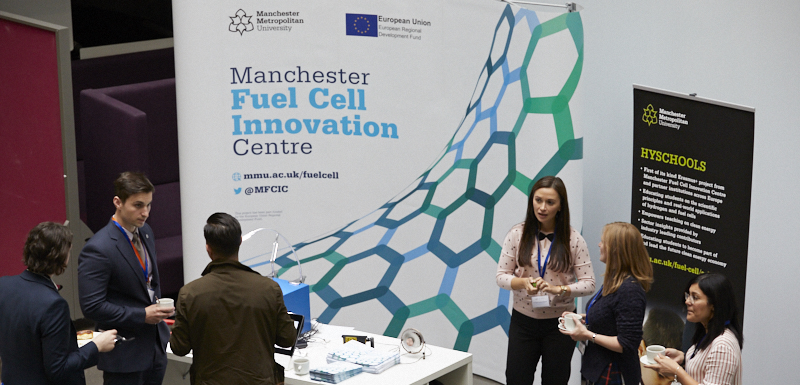News | Friday, 6th September 2019
Mapping the clean energy skills needed to help Manchester become carbon neutral
Business leaders, academics and policymakers attend Clean Energy Skills Conference

Companies, scientists and academics were brought together by Manchester Metropolitan to map what skills and training employees require to help Manchester become carbon neutral by 2038.
The city’s target date for decarbonisation is a full 12 years ahead of the rest of the UK but to achieve its ambitious aim, local businesses and public authorities need people with the right skills to change the way we live and work.
The University convened the Clean Energy Skills Conference today (September 6) for industry representatives, policymakers and academic colleagues to discuss how to bridge the skills gap, alongside representatives from the Greater Manchester Combined Authority, Transport for Greater Manchester and North West Business Leadership Team, an independent group of influential business leaders who work together to promote the long-term well-being of North West England.
Centre of addressing climate change
Professor Andy Gibson, Pro-Vice-Chancellor of the Faculty of Science and Engineering, who was one of the speakers, said: “With Manchester’s aim to be carbon neutral by 2038, everyone is going to have to take responsibility and that message is starting to get out.
“We’re at the centre of what needs to be done in terms of the mitigation and adaption of the effects of climate change.
“I have been asked to look at how educators, scientists and engineers should respond to the climate emergency.
“It’s about adapting the education offer we have and potentially considering new courses, building on the work we have done such as introducing themed case study projects for students in and around, for example, water and energy that align with the Sustainable Development Goals and Industry 4.0, and delivering carbon literacy training for students.”
Five keys areas
Friday’s conference focused on skills solutions for five key areas: energy, transport, key emerging technologies (hydrogen and fuel cells), smart energy systems, and building and infrastructure.
Business leaders sat down with academics, scientists and political representatives to begin to pinpoint what learning opportunities will be required over the next two decades to produce a workforce with the right capabilities and competencies.
Prof Gibson said: “There’s a big transition needed. Much of it is about getting government buy-in, and investment in infrastructure.
“We have to focus on the climate change impacts and work through the introduction of technology. It’s about development and awareness.”
Projects already underway
Through its £4million Manchester Fuel Cell Innovation Centre, the University already delivers an education outreach initiative called HySchools that teaches secondary-age pupils about hydrogen and fuel cells.
Manchester Metropolitan is also heavily involved in Industry 4.0, taking part in applied research, delivering degree programmes, and helping SMEs and larger companies become more sustainable and greener through the implementation of smart technology and infrastructure that cuts waste and boosts productivity.

Developing skillsets
Amer Gaffar, Director of the Manchester Fuel Cell Innovation Centre, who also spoke at the event, said: “We organised the conference because a lot of the industry sector and political sector is telling us that the industry requires skills that are currently not being catered for.
“We are trying to develop skillsets across the whole value chain – not just academic skills but technicians and engineers to work in the emerging clean energy sector.
“Once we have identified the necessary skills, it will allow us to work with schools and further education colleges to develop high level courses.”





